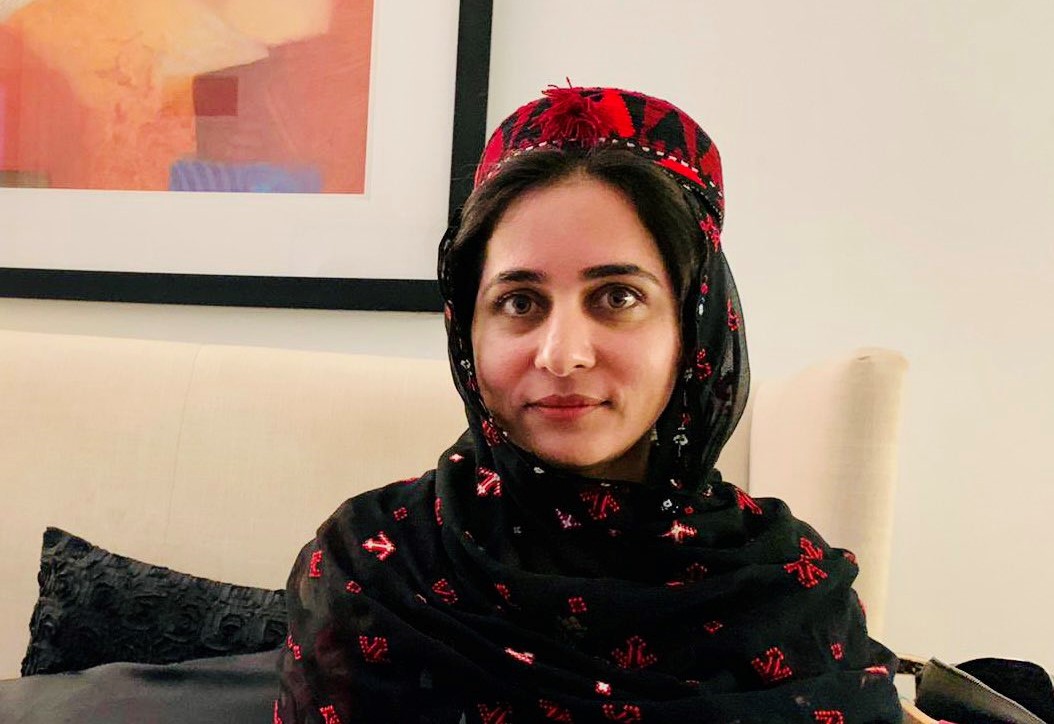Role of a woman in a struggle is important to bring about the much needed change. Anywhere in the history of revolutions women have played a crucial role. As the saying goes “Behind every successful man there’s a woman”, she can be in the form of a mother, sister, wife, or daughter. If we take the example of Baloch freedom struggle, the Baloch freedom fighters have had the full support of their families, especially women. From a young age the mothers sing lullabies to make them brave and fight for justice against any oppression and occupiers.
The story of inspirational and historical woman Banuk Karima Baloch starts from the day she joined BSO-Azad in 2005. It was the time when the founder of BSO-Azad Dr. Allah Nazar Baloch was abducted by Pakistani intelligence agencies along with his colleagues and younger brother. Karima Baloch started working from that day wearing a veil (niqab). But no one knew that she will become a leader and an inspirational figure for Baloch all over the world.
Karima Baloch couldn’t get the Nobel Peace Prize because she was a Baloch. If she were in an independent country she would have certainly won it. Malala won it because she had the support of the state.
I never heard Malala Yousafzai speak about the rights of women and education in Balochistan. Girls’ college in Mashkai Gajjar and schools around Balochistan were turned into an army camp and torture cell but Malala never spoke a word about it. Karima Baloch and other Baloch activists struggled for their rights not only for the Baloch nation but also for Pashtuns and other subjugated nations of the region. The people who favor no one but stand for truth deserve the Nobel Peace Prize.
Karima Baloch soon appeared all over Balochistan in rallies, press clubs and protests. She soon became an active political member of Balochistan. Because of her activities and hard work in 2006, she became a central committee member of BSO-Azad. In 2009 when Zakir Majeed was abducted she took his position of senior Vice Chairman. She became chairperson when Zahid Baloch was abducted on March 18, 2014. Karima was the first woman chairperson in the history of the Baloch Students Organization (BSO).
As a female leader, Karima Baloch’s role in BSO-Azad is greatly admirable because at that time many members of the organization were abducted and killed, especially the senior leadership. Karima filled the vacuum left by her comrades and led all protests, rallies and press conferences and guiding the younger generation of students. In 2013 when the government of Pakistan banned the Baloch Student’s Organization (BSO) Azad many more members were abducted and killed.
In 2016 she left Balochistan and went to Canada because the Pakistani authorities threatened her that she would face the same consequences as her comrades. After reaching Canada Karima took political asylum. She thought she was safe in this country and removed her veil and showed her face, but it’s a shame that Canada failed to protect her from her enemies.
After reaching Canada, Karima was named among the 100 most influential women by BBC. She started her education which she couldn’t continue in Pakistan. Along with her education she also continued her political activities. She spoke and participated in the rallies of Baloch, Sindhi, and Pashtuns against the ongoing aggression by Pakistani state. The last time I saw her, she was speaking in a webinar on YouTube on November 13. Karima was speaking about Baloch martyrs but I didn’t expect that she would leave soon and become a martyr herself.
The news about her martyrdom has left us shocked, but her martyrdom will motivate many more people, especially the women into our struggle. After Karima’s martyrdom a lot of women have come out to protest for her. The land of Balochistan has thousands of Karimas. Every home has a Karima. How many will Pakistan kill?

